How UV Light Technology Can Help Clean the Air in Your Home
Indoor air quality is a major concern for many Florida...
Florida homeowners rely on air conditioning more than most parts of the country. With high humidity and long stretches of warm weather, your AC system does much more than provide comfort. It also helps control indoor air quality and reduces the risk of mold or excess moisture inside your home. Because it works so hard, it needs consistent attention to remain reliable. Regular upkeep can extend its lifespan, improve energy efficiency, and prevent unexpected breakdowns. Below are practical tips to help you care for your AC system throughout the year.
One of the simplest and most important maintenance tasks is replacing your air filters. Dirty filters block airflow and make the system work harder than necessary. This not only drives up your energy bill but also increases wear on the unit. In Florida, where pollen and dust are common, filters may need to be replaced more often than the standard recommendation of every three months. A good practice is to check them monthly and replace them whenever they look clogged. Clean filters help your system cool more effectively and improve the air quality in your home.
Your outdoor condenser unit needs room to breathe. If it becomes surrounded by leaves, grass clippings, or branches, airflow is restricted. This can lead to overheating and reduced efficiency. Make sure there are at least two feet of clear space around the unit. Trim back any nearby plants, and check it after storms for debris buildup. Gently rinsing the unit with a garden hose a few times a year can also help remove dirt and keep it operating smoothly.
While homeowners can handle certain upkeep, a licensed technician should inspect your system on a regular basis. In Florida, most AC companies recommend a professional tune-up in the spring before the peak summer season and again in the fall. During these visits, the technician will clean coils, check refrigerant levels, test electrical components, and make sure all parts are working correctly. This preventative care often catches small problems before they turn into costly repairs.
Your thermostat plays a big role in how hard your system works. Setting the temperature too low forces the AC to run constantly, increasing both wear and energy usage. For Florida homes, the Department of Energy suggests keeping the thermostat at 78 degrees when you are home and a bit higher when you are away. If you have a programmable or smart thermostat, you can set schedules to match your lifestyle and avoid unnecessary strain on the system.
Leaky or dirty ducts can significantly reduce the performance of your AC system. Dust, mold, and other contaminants often build up inside, leading to poor airflow and health concerns. If you notice uneven cooling, musty smells, or visible dust near vents, it may be time to have your ducts inspected. Sealing leaks and cleaning ducts not only improves efficiency but also helps maintain cleaner air throughout your home.
Your AC system will often give you signs when something is wrong. Grinding, banging, or squealing noises may indicate loose or failing parts. Strange smells could point to mold growth, electrical issues, or burning components. Do not ignore these warning signs. Contact an HVAC professional promptly to prevent a minor issue from turning into a complete system failure.
Moisture is a constant challenge in Florida. Excess water around the unit can cause corrosion or lead to mold growth inside the system. Check the condensate drain line regularly to ensure it is not clogged. A blocked line can cause water leaks and damage your home. Many homeowners choose to install a float switch or safety device that automatically shuts the system off if a leak is detected.
Your AC system does not work alone—it depends on proper insulation to keep cool air inside. Poor insulation forces the system to run longer to maintain your desired temperature. Inspect your attic and duct insulation to make sure it is intact and effective. Upgrading insulation can lower your energy bills and reduce strain on the system.
Even with diligent maintenance, no AC system lasts forever. Most units have a lifespan of 10 to 15 years. As they age, efficiency drops and repair costs rise. If your system requires frequent repairs or struggles to keep your home comfortable, it may be more cost-effective to invest in a replacement. Newer models are designed to use less energy, which can save you money in the long run.
Ceiling fans do not lower the temperature, but they improve air circulation and make rooms feel cooler. This allows you to raise the thermostat slightly without sacrificing comfort. By using fans strategically, you reduce the demand on your AC system while still keeping your home comfortable.
The most important factor in maintaining your AC system is consistency. Skipping routine checks or delaying repairs often leads to bigger problems later. Create a schedule for filter changes, system inspections, and duct cleanings. Many Florida homeowners choose service agreements with a trusted HVAC company, which provide regular maintenance visits and peace of mind.
Air conditioning is more than a luxury in Florida—it is a necessity. By staying proactive with maintenance, you can extend the life of your system, save on energy costs, and ensure your home remains comfortable no matter the season. Simple habits like changing filters, monitoring thermostat settings, and scheduling regular professional service go a long way. If you ever notice changes in performance, unusual noises, or rising utility bills, do not wait to address the issue. A well-maintained AC system works more efficiently and helps protect your investment in your home.
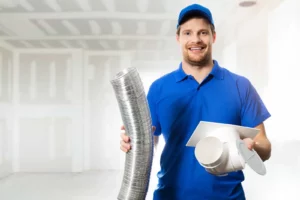
Indoor air quality is a major concern for many Florida...

Indoor air quality, often abbreviated as IAQ, plays a crucial...
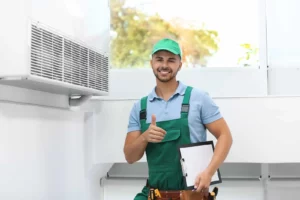
Installing a new HVAC system is a significant investment in...
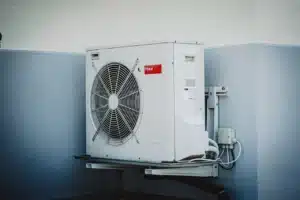
For many homeowners in Florida, the HVAC system is the...
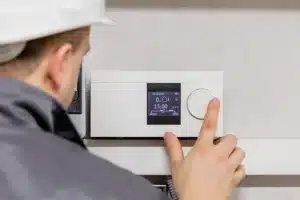
Homeowners in Florida are always looking for ways to stay...
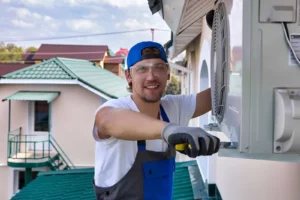
When a Florida summer hits, you expect your central air...